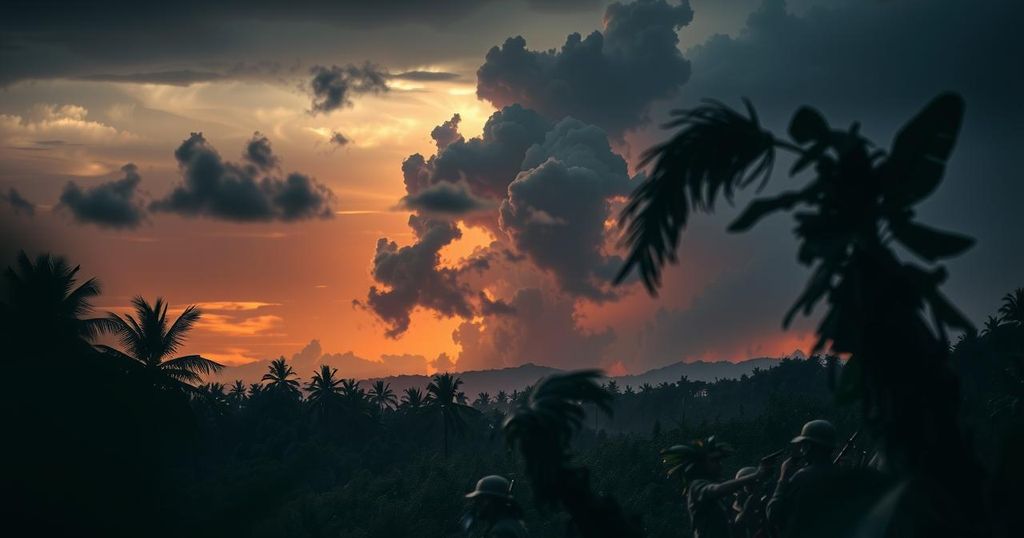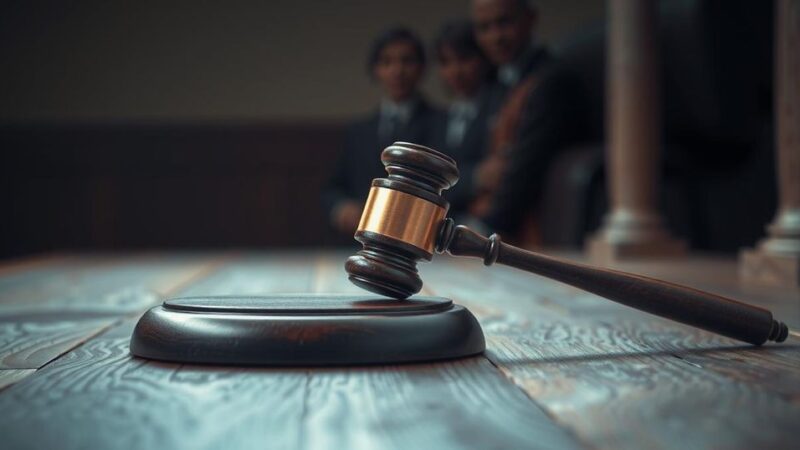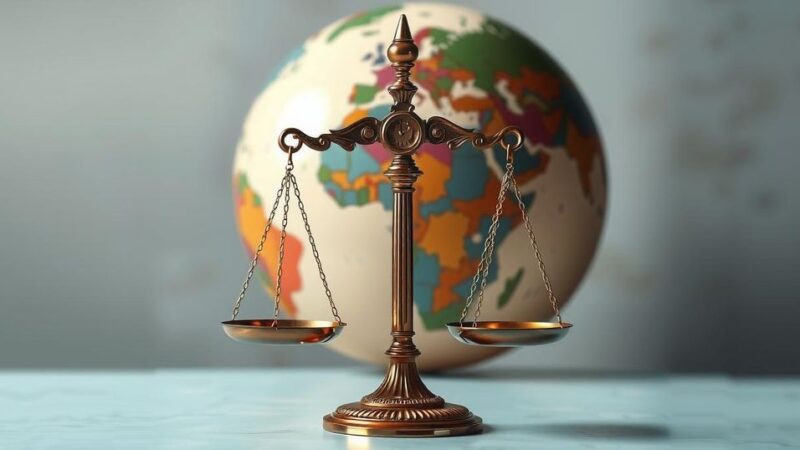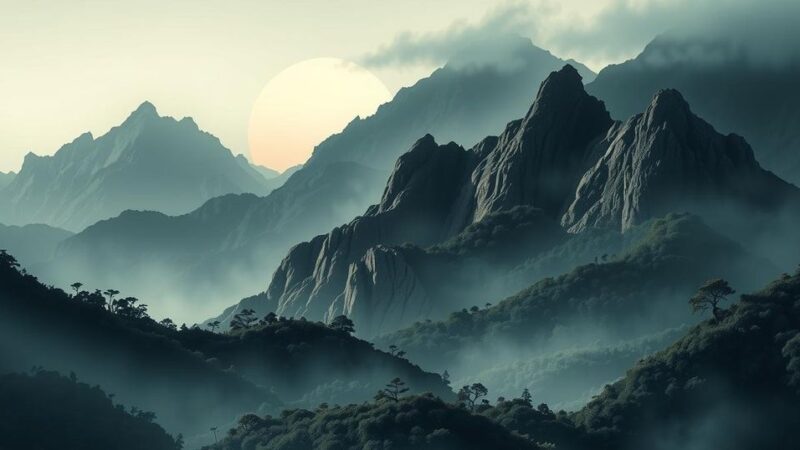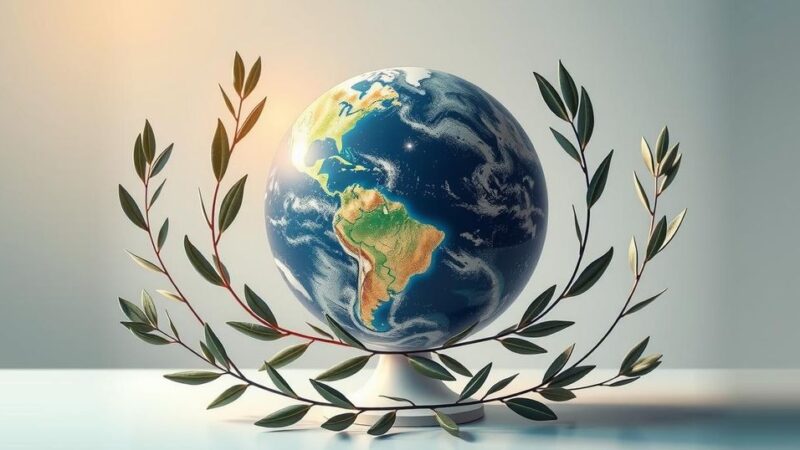The M23 rebel group’s seizure of Goma heralds a significant escalation in the DRC, exacerbating an already severe humanitarian crisis. Ethnic Tutsi leaders of M23 argue they fight to protect their people from Hutu militias, while historical conflicts and international allegations hint at broader geopolitical dimensions. Global implications of these tensions affect supply chains and international trade in critical minerals.
The M23 rebel group in the Democratic Republic of the Congo (DRC) has recently captured Goma, a strategic city in the east, and is advancing towards Bukavu. This takeover is a significant escalation in a long-standing conflict that has displaced over a million people and intensified violence in the region. The situation has aggravated a humanitarian crisis, overwhelming hospitals and leaving countless bodies in public spaces as civilians flee from ongoing hostilities.
M23, primarily led by ethnic Tutsis, claims to protect their community from Hutu militia attacks, particularly from the Democratic Forces for the Liberation of Rwanda (FDLR). This group comprises individuals implicated in the Rwandan genocide. M23 emerged following a failure of the Congolese government to fulfill commitments outlined in a 2009 peace agreement, prompting the group to resume arms in 2022.
Goma, situated near the Rwandan border and Lake Kivu, is a critical resource hub, granting access to rich mineral deposits essential for various industries. M23 generates considerable revenue through coltan mining, essential for electronic devices, and controlling trading routes substantially enhances their economic power.
The conflict in eastern DRC has persisted for over three decades, rooted in the aftermath of the 1994 Rwandan genocide. Presently, more than 100 armed groups vie for influence and control over the region’s wealth. Historical military interventions by Rwanda and Uganda have deepened this turmoil, leading to what is often termed “Africa’s World Wars,” which claimed millions of lives.
Allegations against Rwanda suggest it has been providing M23 with military support, a claim the Rwandan government vehemently denies, asserting defensive motives. Rwanda has accused the DRC of collaborating with the FDLR, which targets Tutsi communities in both nations, further complicating the conflict’s dynamics.
The ramifications of the DRC conflict extend internationally due to the country’s significant contribution of minerals like coltan and gold to global markets. Ongoing violence disrupts supply chains, potentially inflating product prices in the consumer technology sector.
United Nations peacekeepers have been engaged in the DRC under the MONUSCO mission to assist the Congolese military against M23. However, escalating violence has delayed planned withdrawals, with approximately 11,000 UN personnel remaining in the region. Following Goma’s fall, evacuation of UN staff occurred, alongside pro-government militia retreating to their bases for safety.
The Southern African Development Community has increased its military mission to support Congolese forces, albeit at a time of significant losses for local and regional troops. Countries such as the United States and France have called on Rwanda to cease its support for M23, as the rebel group contemplates further territorial expansion towards Bukavu, which may intensify the ongoing crisis.
The Democratic Republic of the Congo (DRC) has experienced prolonged conflict, particularly in the eastern regions linked to historical ethnic tensions and resource control. The M23 rebel group, formed following unmet governmental promises, has become a prominent force, with its actions rooted in the historical context of the Rwandan genocide. The humanitarian crisis resulting from this violence underscores the dire consequences for civilians, with institutions struggling under the pressure of influxes of displaced populations. The strategic importance of cities like Goma highlights the economic implications of the conflict, while international responses reflect the global repercussions of DRC’s ongoing instability.
The situation in the DRC remains precarious as the M23 rebels have established control over Goma, marking a pivotal moment in a complex and enduring conflict. Continued allegations of external involvement, coupled with the dire humanitarian impact, necessitate urgent global attention. The international community’s response, including calls for restraint towards Rwanda’s potential backing of M23, is critical as events unfold towards Bukavu, potentially signifying further escalation of violence.
Original Source: www.business-standard.com

